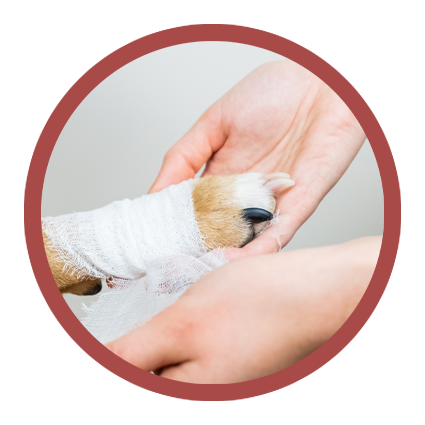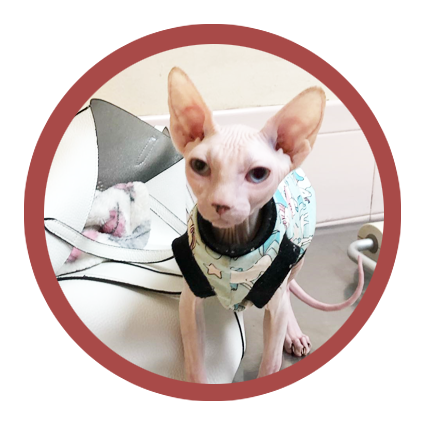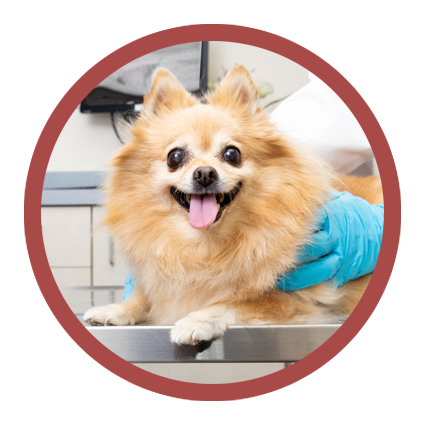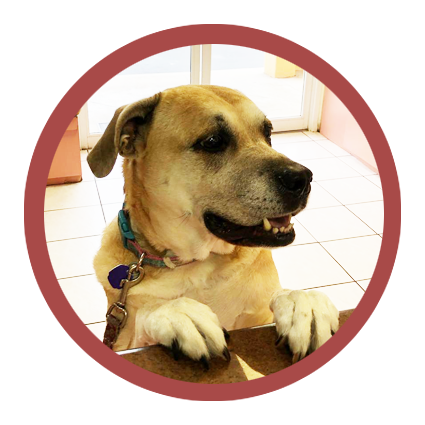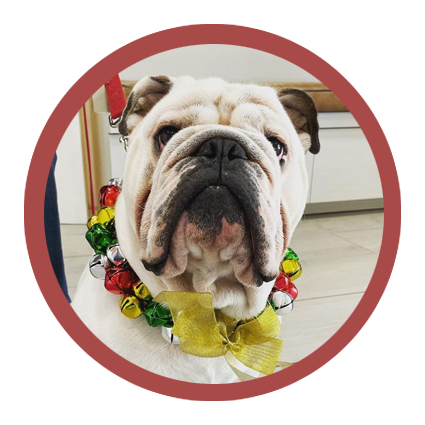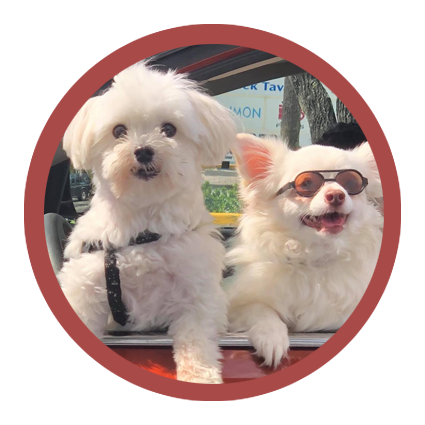|
Brachycephalic Obstructive Airway Syndrome Surgery
What is a brachycephalic breed?
Ever-so-lovable “flat-faced” or “smushed-faced” breed with short skull conformation who often suffers from congenital anatomical variations that lead to respiratory problems.
What does this mean for my pet?
Your adorable flat-faced dog breed may have 1 or more of the following airway abnormalities that he/she was born with:
- Stenotic nares
- Elongated soft palate
- Hypoplastic trachea
- Everted laryngeal saccules
- Tonsillar/pharyngeal hyperplasia
|
 |
TOO MUCH STUFF CRAMMED IN A SMALL AMOUNT OF SPACE!
This can lead to B.O.A.S.
Brachycephalic Obstructive Airway Syndrome
- Higher risk of heat stroke, exercise intolerance, even death
- Higher risk of anesthesia
- May not be able to live a happy normal dog life because they cannot do things other dogs can do without difficulty breathing
How does LASER Surgery help my pet breathe better?
All the incisions made to open the nasal passage and remove excessive tissue in the back of the throat are made with a powerful surgical laser beam.
As a result, your pet will experience:
- little to no bleeding
- no stitches
- less pain
- less anesthesia time
- faster recovery

What can I do about it?
Be proactive - Schedule a consultation to determine if your pet is a candidate for this procedure.
“Wait and see” approach (NOT RECOMMENDED)
- Monitor for heavy breathing sounds/snoring at rest, cannot play or exercise without loud breathing noises.
- Schedule consultation for surgery if this continues or gets worse
- As your pet gets older and if respiratory signs progress, this can lead to other components of the syndrome manifesting, leading to worse prognosis even with surgery (not to mention higher anesthetic risks)
Do all brachycephalic breeds need surgery?
No, but most of our patients who were deemed to be good candidates for surgery experience dramatic, life-changing results.
Put it in perspective What may seem normal or cute to you may actually be a sign of a suboptimal quality of life.
Putting yourself in your dog’s paws Try pinching your nose together to see what it is like to breathe through small opening.
Recall when you had a cold and had nasal congestion and could only breathe through your mouth.
Imagine trying to exercise or play a sport with your nose pinched or throat closed up.

Is this condition reversible (i.e. can my pet outgrow this with time)?
No, if anything, it can get worse and what began with minor problems can progress to irreversible changes.
How much does it cost?
It depends on what kind of pre-anesthetic testing the doctor recommends and which procedures need to be performed. This will be discussed at the time of the consultation.
Does pet insurance cover this procedure?
Most likely, especially if you signed up for insurance BEFORE you sought out treatment for this condition. Most insurance policies will not cover pre-existing conditions.
When is the best time for my pet to have this procedure done?
As young as 6 months of age and BEFORE he/she develops serious breathing problems.

What is the post-operative recovery process like? What can I expect after surgery?
Your pet will go home the same day after being dropped off in the morning. No food after midnight the night before. Limited water is okay.
We will send home pain medications and antibiotics to be started the next morning.

The opening to the nasal opening may appear too large or asymmetrical immediately after surgery. It will look better with time. Remember, this is not cosmetic surgery.
You may also notice crusts that fall off the nose and/or mild nasal discharge. This is expected and can gently be wiped down with warm wet gauze daily. Apply a triple antibiotic ointment or Vaseline to keep lubricated.
Some dogs experience a mild cough (from the endotracheal tube) or decreased appetite after surgery. Please notify the doctor if this persists after 24-48 hours. Bowel movements may not occur for up to a week after surgery. This is normal due to anesthesia and pain medications. Your pet should urinate within 24 hours of going home.
Soft food for 1-2 weeks. You may offer this when they are brought home from surgery.
The complete healing process takes 2-3 weeks.
Please keep your pet in a cool, quiet environment away from other pets and anything that may excite him/her.

When can I expect results?
Results vary from immediately after surgery to 3 weeks.
This depends on the following: age at time of surgery, breed, if your pet has other anatomical abnormalities at the time of surgery that cannot be repaired surgically and degree of post-operative inflammation.
What are possible complications?
Bleeding, infection, aspiration pneumonia and as with any anesthetic procedure, death can occur due to reasons beyond our control. For these reasons, we do not take this procedure lightly and ensure that all pre-anesthetic precautions are taken to determine if your pet would be a suitable candidate for surgery.
I would like to see if my pet is a candidate for surgery. What is the next step?
Schedule a consultation with the doctor by calling 561-798-8000 or by requesting an appointment on our website www.midcountyvet.com.
Dr. Henriquez will collect medical history and perform a physical examination of your pet. She will then determine what pre-anesthetic testing must be performed prior to surgery. This will be your opportunity to ask any questions and receive an estimate of the services to be provided.
About Dr. Henriquez

Dr. Cynthia Henriquez received her Doctorate of Veterinary Medicine at The University of Florida College of Veterinary Medicine in 2010, graduating with honors. She earned her Bachelor of Science degree, also with honors, from The University of Miami. After graduating from veterinary college, she took part in an optional rotating internship at a specialty hospital in South Florida.
As a veterinary student, Dr. Henriquez co-authored the following published papers: “Excision of a congenital laryngeal cyst in a five-month-old dog via a lateral extraluminal approach” and “Comparison of short-term complication rates between dogs and cats undergoing appositional single-layer or inverting double-layer cystotomy closure: 144 cases (1993-2010).” She also participated in mission trips to Africa and India with Christian Veterinary Mission. During her undergraduate time, she spent 1 month in Nepal teaching English to local Sherpa families.
Her special interests include laser surgery and dentistry because she believes the dramatic, often immediate difference that can be made is so rewarding.
In her free time, Dr. Henriquez enjoys attending veterinary conferences and hands-on labs, traveling, experiencing other cultures, teaching kids at her church’s AWANA program, and spending time with her family.
| 













